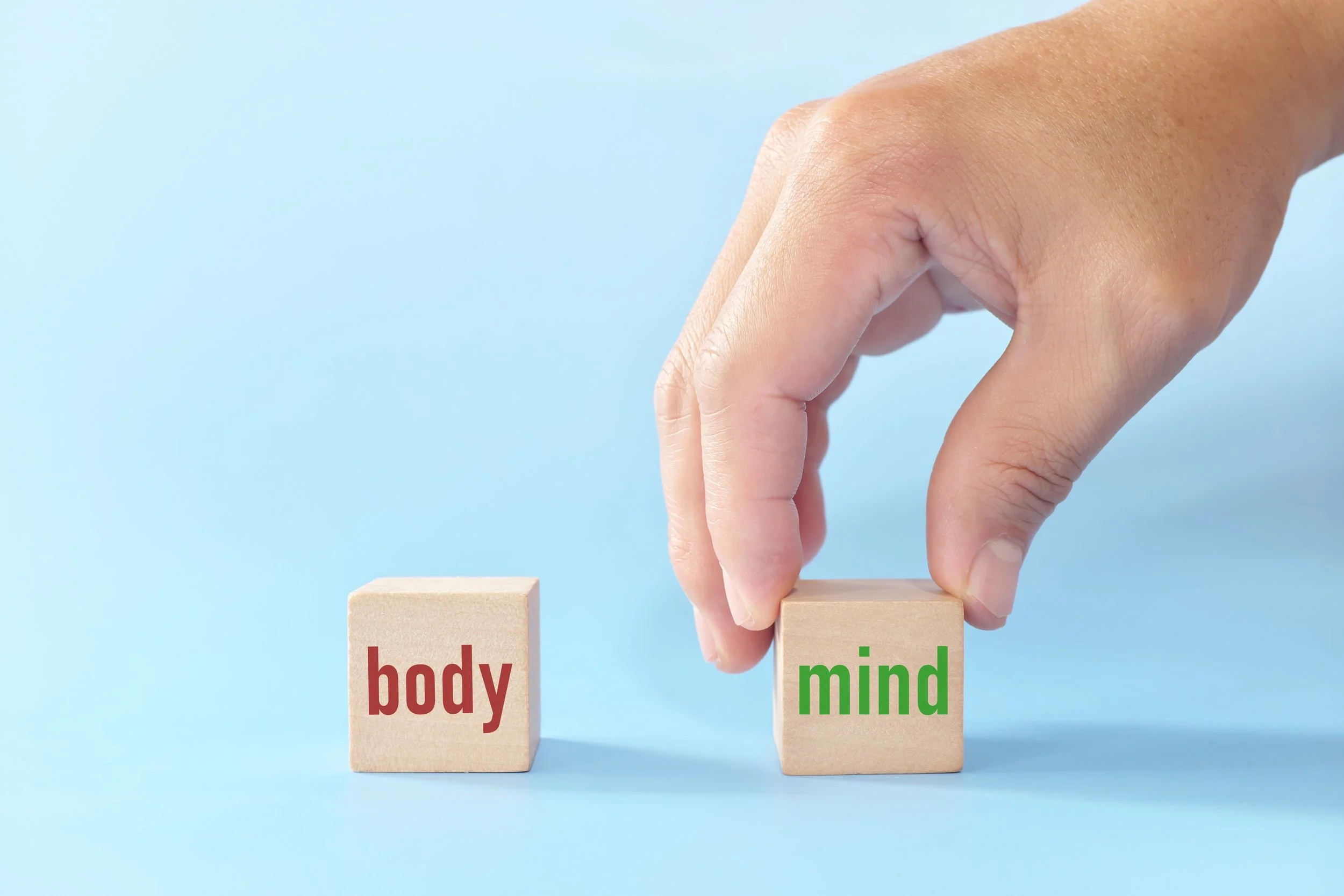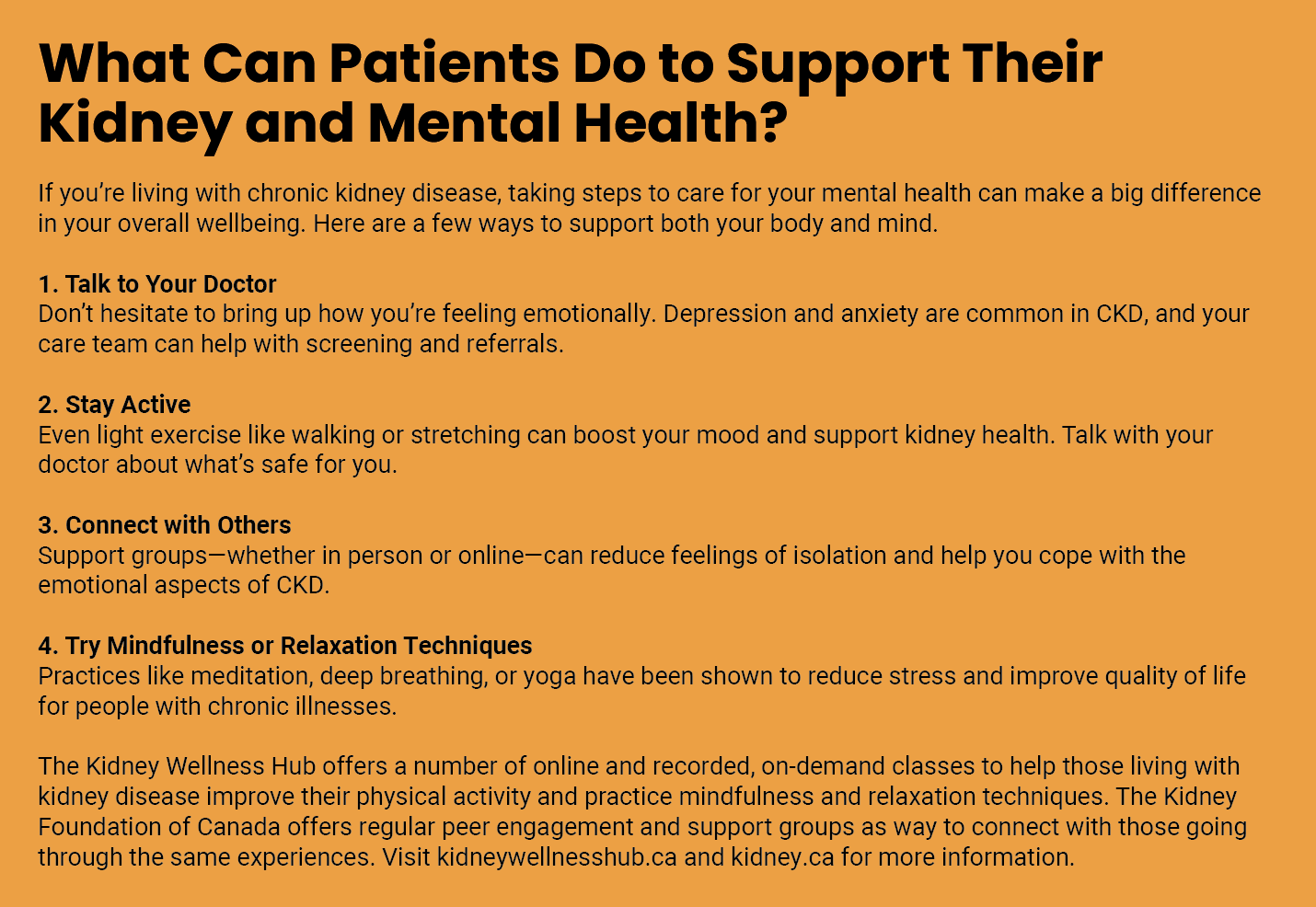The Hidden Connection Between Kidney and Mental Health
Contributor: Darpan Bhathal, MSW, RSW
Your kidneys do more than just filter waste—they play a vital role in keeping your entire body balanced and healthy.
But what many people don’t realize is that kidney health is closely tied to mental health.
The connection between mental health and chronic kidney disease (CKD) is becoming increasingly clear, with growing evidence that emotional wellbeing plays a vital role in both the progression of the disease and the overall quality of life for those affected.
Recent research shows that individuals with CKD are much more likely to experience depression, anxiety, and other mental health challenges. At the same time, poor mental health can worsen kidney function. Understanding this connection can help patients, families, and healthcare providers take a more complete approach to wellbeing—one that supports both the mind and body.
High Prevalence of Mental Health Issues in CKD Patients
A comprehensive meta-analysis encompassing over 80,000 CKD patients across 27 countries revealed that approximately 26.5% experience clinical depression, with higher rates observed in those undergoing hemodialysis.
A study published in the American Journal of Kidney Diseases this year also found that patients with CKD are 56% more likely to suffer from serious mental illnesses, such as schizophrenia and bipolar disorder, compared to the general population. Additionally, a prospective cohort study from the UK Biobank demonstrated that individuals with psychiatric disorders have a 52% increased risk of developing CKD, highlighting the need for integrated mental health care for those living with kidney disease.
Effective Interventions
Addressing mental health in CKD patients is crucial for improving outcomes. Last year, a systematic review and meta-analysis of 19 randomized controlled trials published in BMC Nephrology found that psychosocial interventions, including psychotherapy, significantly reduce depressive symptoms in adults with CKD.
Meditation is a proven mind-body practice that can significantly benefit people with kidney disease, both emotionally and physically. While it does not reverse kidney damage, it helps manage the stress, anxiety, blood pressure, pain, and depression that often accompany CKD and dialysis. Meditation can also improve treatment adherence by improving mental clarity and motivation. Furthermore, it can help reduce pre-session anxiety and help to recover and relax after dialysis.
Lifestyle modifications also play a pivotal role. A study analyzing data from the National Health and Nutrition Examination Survey (NHANES) between 2007 and 2018 found a significant association between sedentary behaviour and increased depression in CKD patients, suggesting that promoting physical activity could mitigate depressive symptoms. The evidence underscores the necessity of incorporating mental health assessments and interventions into routine CKD care. Regular screening for depression and anxiety, coupled with appropriate psychosocial support, can not only improve mental wellbeing but also potentially slow CKD progression.
For individuals living with CKD, addressing mental health is not just beneficial—it’s essential for comprehensive care and improved outcomes. As awareness grows and more healthcare systems adopt a holistic approach, individuals living with CKD can look forward to better support and improved quality of life.
(reprinted from Kidney Magazine)


